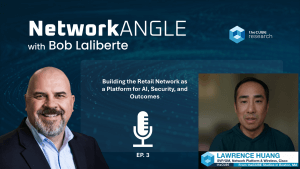AI-driven transformation is a present imperative. Yet as organizations race to operationalize AI across diverse environments, they encounter a recurring friction point: deployment architecture. Whether driven by data sovereignty, cost control, or skill gaps, enterprises increasingly demand the ability to run AI workloads wherever it makes business sense. All without sacrificing security, portability, or developer velocity.
At Open Source Summit North America 2025, I spoke with Robert Sirchia, Director of Technical and Community Marketing at SUSE, to explore how the company is addressing these intersecting pressures. With decades of experience supporting open source infrastructure, SUSE is evolving its approach to reflect the hybrid, choice-driven reality of modern enterprise development.
AI at the Crossroads of Portability, Security, and Developer Velocity
The rise of artificial intelligence has introduced new pressure on organizations. Pressures like the ability to deploy flexible, secure, and scalable workloads across hybrid environments. In our latest research, 46% of enterprises are building their AI workloads in public clouds, while only 11% are developing them on-premises. Yet when asked about future deployment, a notable shift emerges: 33% plan to migrate these workloads across hybrid and multi-cloud environments by 2027.
This evolution is not without complexity. Fragmented developer workflows, lack of unified security standards, and inconsistent tooling across hyperscalers make AI deployment less about innovation and more about integration. Developers face pressure to navigate a sprawl of open source dependencies while meeting compliance and software supply chain requirements. It’s no longer enough to build, enterprises must build responsibly, securely, and everywhere.
SUSE’s Model for Frictionless, Secure AI Workload Portability
SUSE’s strategic commitment to “choice happens” is more than a philosophy; it’s a response to a growing enterprise demand for secure, open source-based deployment across infrastructure boundaries. Rather than dictate architecture or vendor allegiance, SUSE empowers organizations to run AI workloads anywhere (on-premises or in the cloud) with a consistent, hardened foundation.
As Robert Sirchia explained, “We don’t care where you run it. If you want to run it on-prem, great. If you want to run it in the cloud, great. But we want you to do it securely and have a choice.”
To support this, SUSE has invested in secure container images (SLE BCI), curated application collections (like PostgreSQL), and standardized best practices for Kubernetes-based workflows. These assets reduce friction for developers by abstracting away infrastructure-specific complexity and automating patching, compliance scanning, and update cycles.
On the security front, SUSE’s use of Open Build Service (OBS) ensures provenance and reproducibility across its software pipelines. “We know where the code comes from. We’re building it. We’re packaging it. It’s the same tooling we use to build our enterprise operating system,” Sirchia noted. This approach is aligned with both U.S. Executive Orders and upcoming EU Cyber Resilience Act (CRA) mandates, which prioritize traceability and software bill of materials (SBOM) readiness.
SUSE’s strategic acquisition of NeuVector further strengthens its runtime container security capabilities by allowing consistent policy enforcement across hybrid environments. This is especially critical in today’s regulatory landscape, where location-based sovereignty, data residency, and export controls play an increasing role in AI deployment decisions.
Secure by Default, Flexible by Design
The evolution of AI in the enterprise demands a shift from brittle, fixed-infrastructure architectures to portable, community-driven models that prioritize developer experience and supply chain integrity. SUSE’s approach of being grounded in security, sovereignty, and simplicity offers a blueprint for navigating this transformation.
Three key takeaways for technology decision-makers:
- Standardize the Development Lifecycle Across Environments: Enterprise developer teams need frictionless handoffs between cloud and on-prem. SUSE’s curated toolchains and unified Kubernetes workflows eliminate duplicative effort and reduce skill gap barriers.
- Prioritize Software Supply Chain Trust: Open source software powers modern AI stacks, but trust requires transparency. SUSE’s commitment to build provenance through Open Build Service, coupled with hardened base images, addresses rising scrutiny around software origins and SBOM compliance.
- View Sovereignty as a Community Issue, Not Just a Regulatory One: “Sovereignty starts with the individual,” said Sirchia. In a globally distributed developer landscape, ensuring open access, auditability, and choice fosters not only compliance but community health.
Conclusion
As organizations mature in their AI journeys, deployment flexibility, security posture, and development efficiency are interdependent requirements. SUSE’s developer-first philosophy, hybrid-native architecture, and open source roots position it uniquely to serve enterprises facing these converging demands.
With tooling that spans container security, workload portability, and curated AI-ready environments, SUSE offers more than a platform. It offers agency through the ability to choose without compromise. In a world where AI innovation will be measured not just by what we build, but where and how we run it, that kind of flexibility is becoming the new standard.



